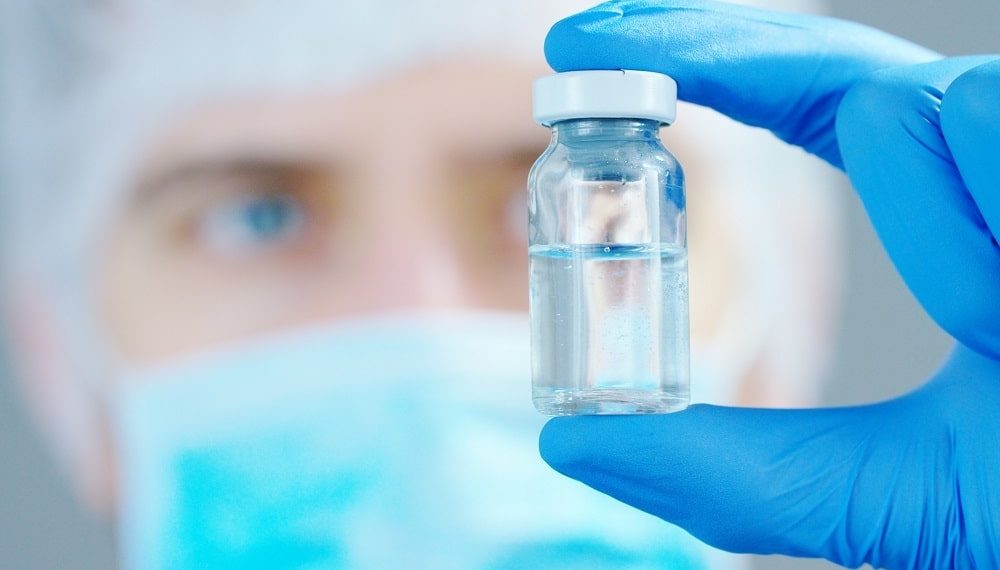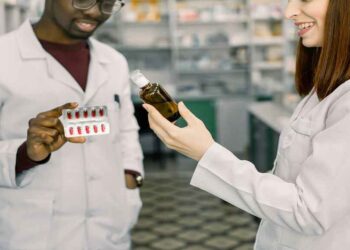Intravacc, one of the world’s leading translational research and development vaccine institutes, with an extensive track record in developing viral and bacterial vaccines, has announced more details on its development of an intranasal vaccine against COVID-19. The vaccine will be developed through a newly established public private partnership that combines the vaccine development technology from Intravacc, the viral vector technology and animal technologies from Wageningen Bioveterinary Research (WBVR) based in Lelystad, the Netherlands, and the coronavirus expertise from Dutch Utrecht University.
The aim of this partnership is to develop an intranasal vaccine to protect humans against COVID-19. The vaccine will consist of a Newcastle disease virus (NDV) vector that expresses the immunogenic spike (S) protein of SARS-CoV-2, which is an important target for neutralizing antibodies. NDV has been shown to be safe for intranasal/intratracheal delivery in mammals, including non-human primates.
The advantage of a nasal vaccination is that it induces both mucosal and systemic immunity, whereas an intramuscular vaccination primarily induces an antibody response. In addition, intranasal vaccination may also confer protection against infections at other mucosal sites, such as the lungs, intestines and genital tract. On top of this the nasal cavity is also easily accessible.
”Intravacc, WBVR and Utrecht University create major synergy by combining distinct complimentary expertise and competencies. A promising collaboration!”
Intravacc will develop a scalable vaccine production process using its FDA-approved Vero cell platform, in preparation of GMP productions. The availability of a safe and efficacious vaccine against COVID-19 will have a large social and economic impact by reduction of severe disease and mortality, lifting bans on (inter)national travel and large gatherings, as well as by reducing the burden on the public healthcare system.
WBVR has developed a technique called ‘reverse genetics’, which allows the genetic modification of Newcastle disease virus (NDV). NDV can cause disease in birds but is harmless for mammalian species including humans. WBVR has used the reverse genetics technique to develop NDV as a vaccine vector against human and animal infectious diseases. This vector technology will now be used to generate a vaccine against COVID-19.
Dr Jan Groen, CEO of Intravacc, said:
“Intravacc’s strength is its ability of bridging the gap between academia and research centers towards pharma. Together with our partners WBVR and Utrecht University, we combine our expertise in developing an intranasal corona virus vaccine. Our safe Vero cell platform, widely used for the production of Polio vaccines, put us in the position to fast track the production of pilot lot of this NCD vector-based vaccine concept and to subsequently transfer this to large vaccine manufactures.”
About Intravacc’s Vero cell platform
Intravacc’s viral vaccine production process is based on a cGMP-grade, regulatory approved, Vero cell line. This platform is being used for routine large-scale commercial vaccine manufacturing by clients world-wide. In addition, virus seed lots and clinical batches have regularly been produced on the Vero cells, for example Poliovirus, Enterovirus (EV71), and Respiratory Syncytial Virus (RSV).
About Intravacc
Bilthoven, the Netherlands, based Intravacc is one of the world’s leading institutes for translational vaccinology. As an established independent R&D organization with over 100 years’ experience in the development and optimization of vaccines and vaccine technologies, Intravacc has transferred its technology all over the globe, including oral polio vaccines, measles vaccines, and DPT, Hib and influenza vaccines. Intravacc offers a wide range of expertise to independently develop vaccines from lead concept to clinical phase I/II studies for partners worldwide such as academia, public health organizations (WHO, BMGF), and biotech and pharmaceutical companies.
Intravacc also has three proprietary vaccine platforms and established state-of-the-art research and production (GMP) facilities. Its aim is to substantially reduce development risks and costs of new vaccines in order to contribute to global health and equity in access to vaccines worldwide.
About Wageningen Bioveterinary Research
Wageningen Bioveterinary Research contributes to the prevention, eradication and control of animal infectious diseases through research, diagnostics and consultancy. By doing so, we contribute to the health and wellbeing of animals and people. We conduct research on health and (infectious) diseases e.g. in preclinical and clinical studies, animal models, epidemiology and risk management. The results of this research and analyses have been utilized to support dossiers, submitted to regulatory authorities in Europe and the US.
Our expertise is continuously expanding by ongoing research projects for private and public stakeholders on topics such as antibiotic resistance, vaccine development, gut health and vector borne diseases. For this, we use our unique facilities in Lelystad that house livestock individually or in groups up to human Biosafety Level 3 and veterinary Biosafety Level 4.
About Utrecht University
Founded in 1636, Utrecht University is one of the largest research universities of Europe, with over thirty thousand students and a staff of more than six thousand. We invest in creating the leaders of the future through innovative education of the highest quality, as reflected by the University’s consistently high position in international rankings. Dedicated to performing groundbreaking research aimed at resolving large global issues, our culture of cooperation is a breeding ground for innovation, new insights and social impact.
For almost 50 years the Faculty of Veterinary Medicine has been at the forefront of coronavirus research. It has built up expertise and know-how on the fundamentals of coronavirus biology, particularly on issues like cell entry and virus replication. For 40 years it was actively engaged in vaccine research, both for animals and humans, in collaborations with numerous pharmaceutical companies. Through its research activities the faculty aims to continue having a scientific and societal impact.



















